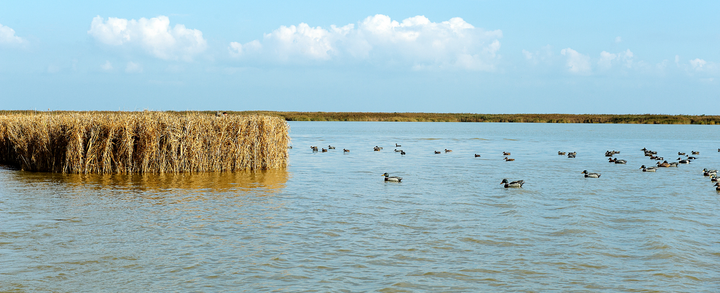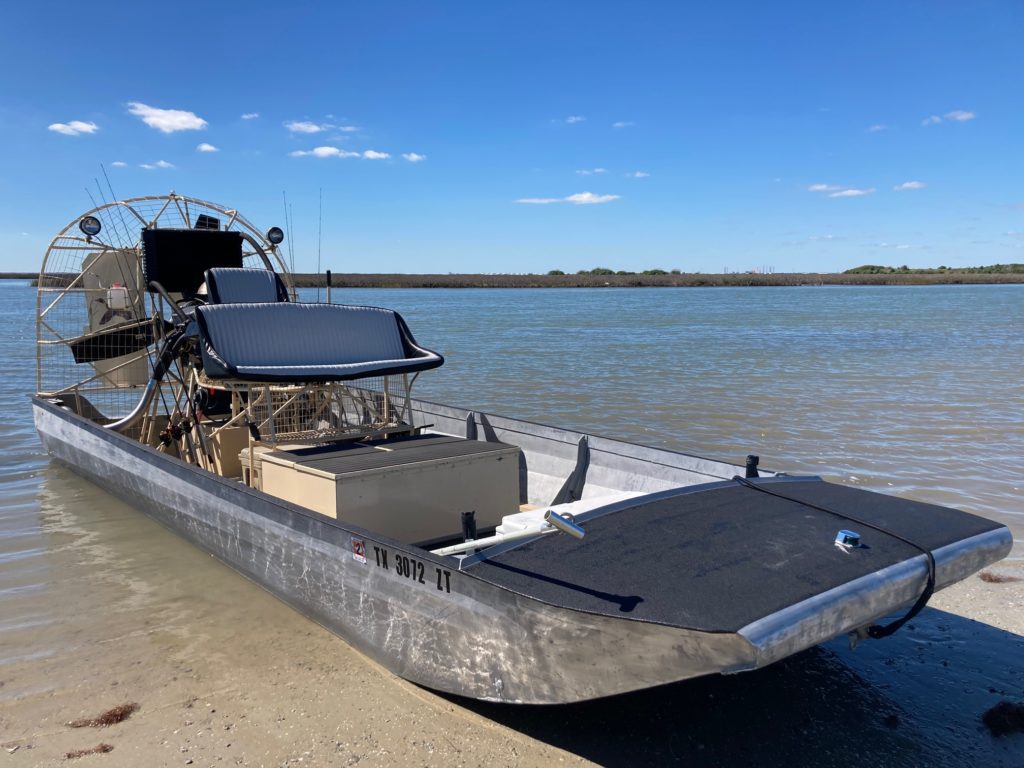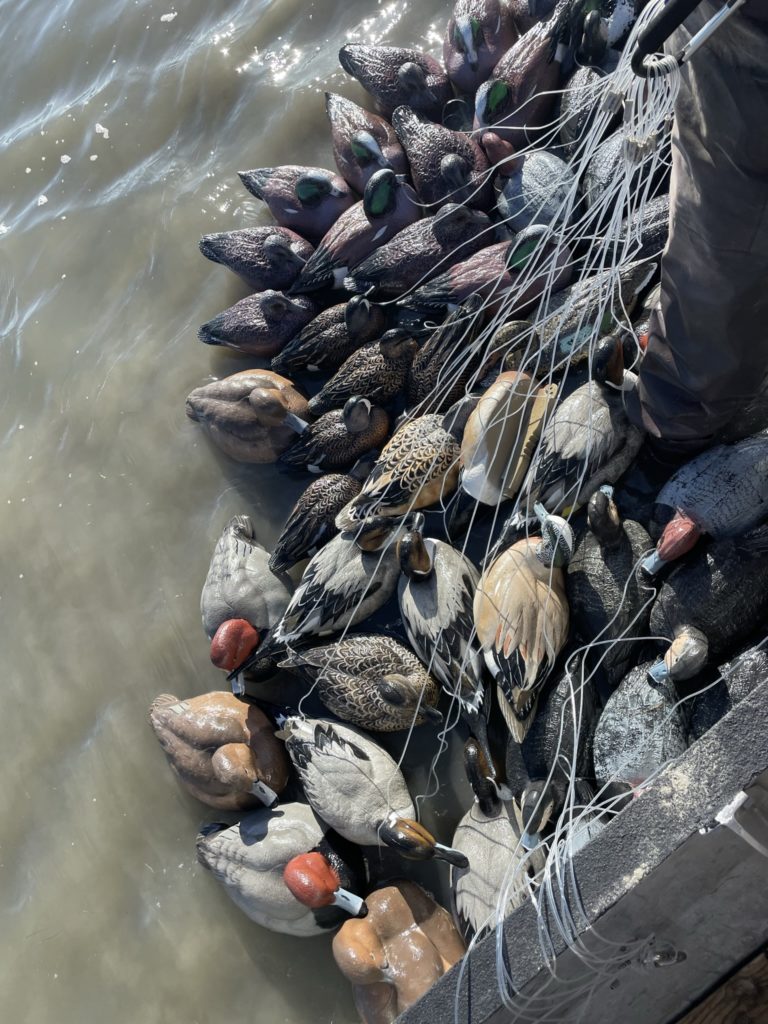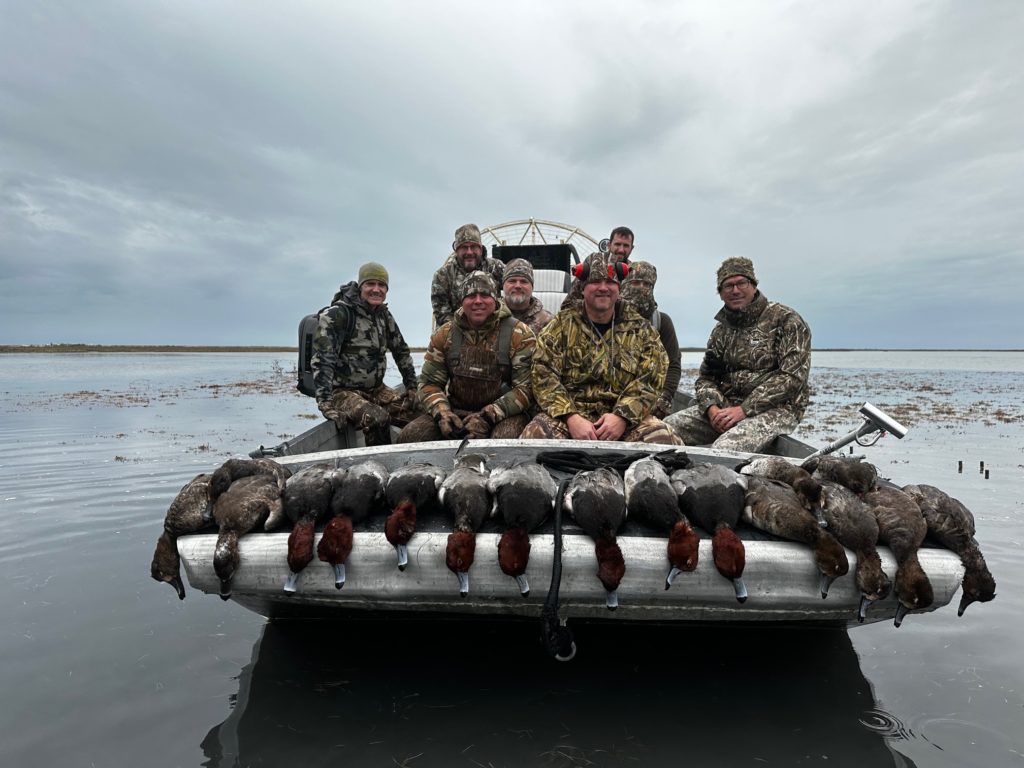Off-season Tips for Texas Duck Hunters
February 14, 2023
Those 3 am wake-up calls, cold mornings, and watching the sun rise over a pond, lake, or the Texas gulf is what duck season is all about. The off-season for any hunting activity means honing your shooting skills, maintaining your well-used equipment, and scouting for future locations. And for Texas duck season, this same sentiment holds true.
It’s a time of rest, recovery, reflecting on past hunts, and reloading for the fall. If you’ve already taken your gun apart and cleaned every pin and mechanism and taken your birds to the taxidermist, here are a few more tips that you can take to prepare for next season.
Keep your equipment in tip-top shape
If you’re in saltwater conditions, perhaps the most tedious maintenance comes with the airboat. For Aiden Flores, owner of Heritage Flats Guide Service and Outfitters, a guide based out of the Texas gulf coast, the post-season is when they make all their cosmetic repairs to the boat which include, new paint, non-skid, and trailer bearings. The remaining upkeep like batteries, alternators, fuel pumps, and carburetors are replaced as needed and typically only last 4-5 years on an airboat in the salt marshes.

For their blinds which are all located within bays on the coast, Aiden removes all of the brush and camo from each duck blind, including his open water blinds. He does this in case a hurricane makes its way through the area. By removing the walls, it not only saves him the cost of lumber but also helps to save the posts and floors of the duck blinds as tides come up and wind whips by. “When we start taking down our blinds and camo, we also evaluate the condition of the blind to determine if it needs to be rebuilt for the next season.”
Touch up your decoys
After weeks of dragging your decoys from the boat, through the mud and marsh, and exposing them to a multitude of weather conditions, after the end of the season, duck dekes need a little love.
For Aiden, the off-season is a time to play doctor on shot decoys and rig up new decoys for the next season. “I typically use a black 5200 sealant to patch any holes and submerge my decoys in a bucket to make sure they are airtight.”
Dust off the dirt and grime, remove any mud, and see if a paint job is in order or if you can hold off painting for another season. If a paint job is necessary, paint from a craft store or a kit sold online will do the trick. Make sure to match the colors appropriately; you can even do research by looking at duck images online to help with nuance and color match.
Use a 1-inch brush for the body and smaller brushes for the eyes and bills, rings, wing patterns, and blotches.

Take a bird dog trauma training course
The best duck hunting dogs will put more birds in your freezer and make your time in the field more enjoyable. And each retrieve makes you appreciate how special your dog is and reminds you of the work it took to get there. Unfortunately, accidents happen, and one singular moment can take all that hard work away. Enrolling in a canine trauma training course can equip you with the knowledge and tools to provide lifesaving care for your canine companions. Most courses also cover nutritional expertise, training methods, and provide insight into keeping your dog in tip-top shape so you’re ready to hit the ground running in the fall. Check your local kennel club for schedules and resources.
Learn a new recipe
Duck meat is rich, fatty, and oh-so-delicious, and with a stocked freezer, spring and summer are the perfect times to start experimenting with different flavors and spices. For us, we love anything prepared by Jesse Griffiths, wild game chef extraordinaire and owner and chef at Dai Due, an Austin-based butcher shop and restaurant:
Scout a new location
Tracking migration, stalking fields and marshes, and mapping potential hunting areas are essential for scouting a new duck hunting location. As you scout in the off-season, keep your eyes peeled for potential cover and weather conditions.
Building relationships with private landowners and developing a network of other waterfowl enthusiasts including other hunters, game wardens, kennel club owners and patrons, and outfitters can all be beneficial in determining a new hunting locale. Trading information and expertise can provide valuable insight and aid in finding a higher concentration of waterfowl.

The end of each duck season marks a time to clean up, freshen up, and prepare for the next. There’s a sense of urgency in this rapid season with hunters trying to make the most of the short window of time. A little preparation during this window can ensure that you will be as ready as possible for your next duck season.
Salsa Verde & Wild Game from the kitchen of Chef Austin Simmons of Tris
February 11, 2025
Texas’ White Bass Run
February 11, 2025
From the Spring to Spirit: Goodnight Loving Vodka
February 11, 2025